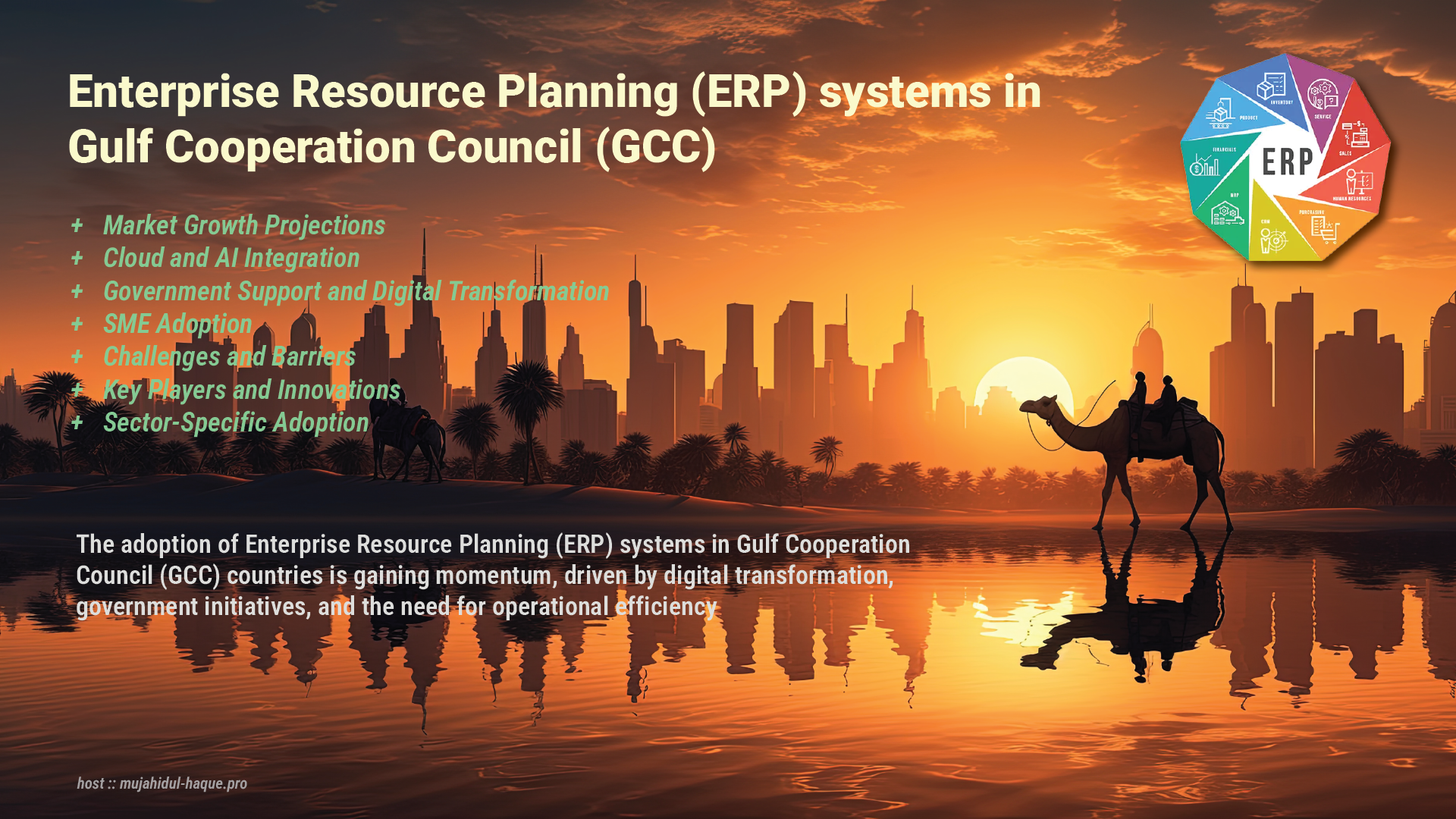Below is a summary of the latest developments based on recent trends and insights:
Market Growth Projections
The Middle East & Africa (MEA) ERP software market is expected to grow significantly, from $5.68 billion in 2025 to $10.20 billion by 2032, with the GCC holding the largest market share in the region. The UAE is projected to lead with the highest compound annual growth rate (CAGR) of 15.5% from 2024 to 2030, reaching a market size of $725.2 million by 2030. Saudi Arabia is also making substantial progress, fueled by investments in technological infrastructure.
Cloud and AI Integration
Cloud-based ERP solutions are increasingly popular due to their scalability, cost-effectiveness, and flexibility, particularly among small and medium-sized enterprises (SMEs). Over 55% of retail companies in the region are adopting hybrid ERP systems, and cloud adoption is accelerated by remote work trends and the need for real-time collaboration.
Artificial Intelligence (AI) integration is a growing trend, with 65% of CIOs in 2022 predicting AI incorporation into ERP systems. AI-driven analytics and automation are enhancing decision-making and process optimization, as seen in Emirates Steel Arkan’s 2023 collaboration with SAP SE for a cloud-based ERP solution.
Government Support and Digital Transformation
GCC governments are actively promoting digitalization through policies and investments, boosting ERP adoption. For instance, Saudi Arabia’s digital transformation programs and the UAE’s support for initiatives like Expo 2025 Dubai are creating opportunities for ERP vendors. These efforts aim to enhance business efficiency and compliance with local regulations.
The UAE’s advanced technological infrastructure and focus on digital transformation make it a leader in ERP adoption, though localization challenges, such as adapting to regional tax systems and business processes, require customization.
SME Adoption
SMEs are a significant growth driver, with increasing demand for affordable, scalable ERP solutions. In the UAE, SMEs are adopting cloud-based systems to overcome resource limitations, while in Saudi Arabia, adoption is still nascent but growing due to competitive pressures and government support.
Challenges and Barriers
High implementation costs, data security concerns, and regulatory compliance remain challenges, particularly in the UAE, where strict data privacy requirements complicate ERP deployment. Resistance to change and data migration complexities also hinder adoption, especially for SMEs. In Saudi Arabia, studies indicate that factors like ICT infrastructure, top management support, and competitive environments significantly influence cloud ERP adoption, while compatibility and organizational culture may not.
Key Players and Innovations
Major ERP providers like SAP SE, Oracle Corporation, Microsoft Corporation, and regional players like FactsERP in Dubai dominate the market. Innovations include tailored solutions for industries like manufacturing, finance, and retail, with modules for inventory, HR, and financial management.
Recent acquisitions, such as Sage’s 2024 purchase of Anvyl to enhance supply chain solutions, reflect the market’s shift toward integrated, industry-specific ERP systems.
Sector-Specific Adoption
ERP adoption is prominent in manufacturing, retail, healthcare, and higher education institutions (HEIs). For example, HEIs in the GCC are adopting ERP to improve decision-making and operational efficiency, though adoption in countries like Egypt remains in early stages.
Conclusion
ERP adoption in Gulf countries is accelerating, driven by cloud technology, AI integration, and government-backed digital transformation. The UAE leads the region, with Saudi Arabia catching up, while SMEs and large enterprises alike are leveraging ERP for efficiency and competitiveness. However, challenges like high costs, regulatory compliance, and data migration require strategic planning and customization to ensure successful implementation.
m.h. | 27 jully 2025 | uttara, dhaka, Bangladesh


Leave a Reply